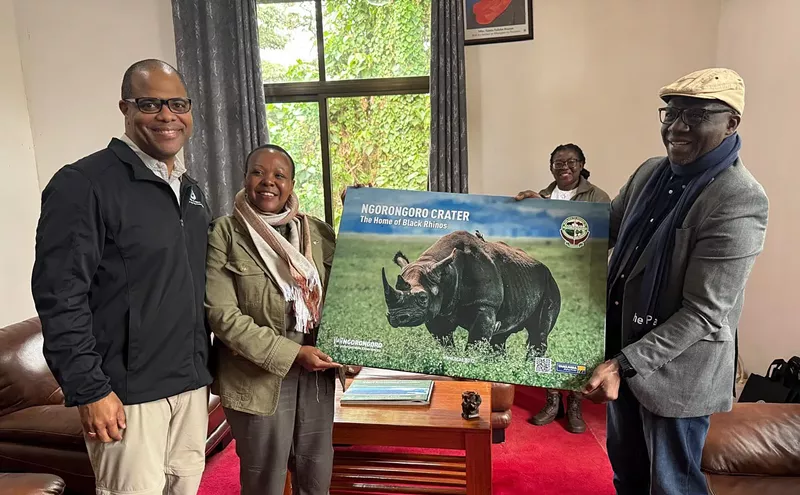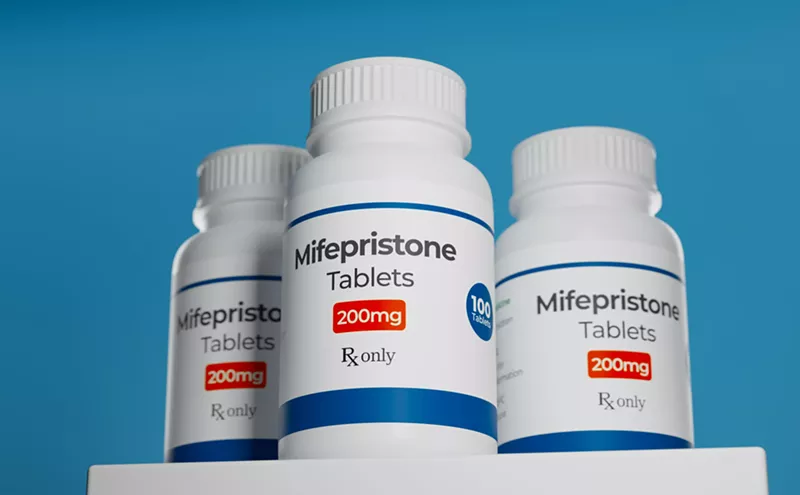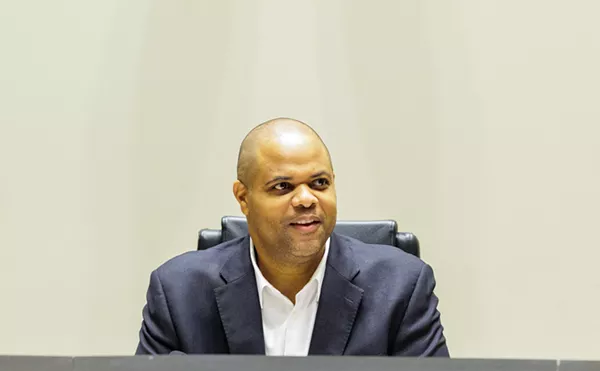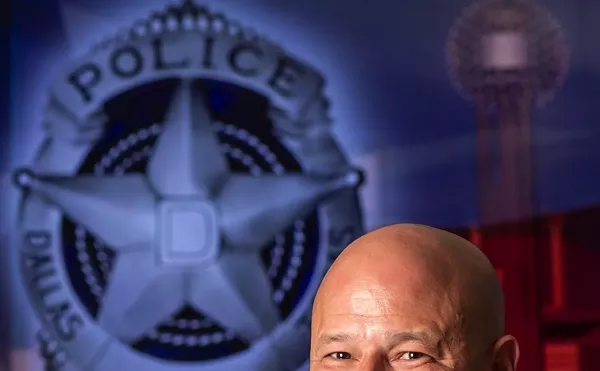Kyle Rote Jr. -- who, it was announced this week, is finally being inducted into the U.S. National Soccer Hall of Fame as a "veteran," no kidding -- did indeed call me back earlier this week. Said I'd have better luck trying him later -- meaning, oh, 'round 11 p.m. or midnight, he'd be up. Rote, who turns 60 Christmas Eve, likes to stay as late as he can at his office in Memphis, where he is a consultant with sports marketing agency Athletic Resource Management, which he founded. (Among his clients is Baltimore Raven Michael Oher, whose life story was recounted in The Blind Side.) There are, he says, fewer distractions in the wee small hours of the morning, when the whole wide world is fast asleep.
And so I got to talk to my childhood sports hero for hours about most everything -- growing up the son of a local legend, becoming one of the first "missionaries" to spread The Word of soccer, writing his life's story when he was just a kid, being enshrined in his sport's hall of fame. And yet, when we hung up close to 1:30 in the morning Wednesday, it felt like we'd just gotten going.
Rote, despite the late hour, speaks in long, thoughtful, eloquent paragraphs that will, occasionally, detour into tangent. What you'll find after the jump is an abbreviated version of our conversation -- no need for you to get sidetracked during daylight hours. Even then, it's less a Q&A than a monologue punctuated by the occasional interruption.
What emerged from our talk was, at times, a rare glimpse into what it was like to play soccer in the U.S. in the late 1960s and early '70s -- just as the sport was making its way into the suburban mainstream thanks in large part to ascension of the North American Soccer League and players like Pele, Franz Beckenbauer and Rote -- who, in 1973, Sports Illustrated called "the sport's Great American Hope." As Rote says, playing soccer back then was as much an act of rebellion as growing out your hair and smoking dope -- which Rote, a man who'll casually quote Scripture, most assuredly did not do.
Congratulations on your induction into the Hall of Fame. I assume at this point, it's nice, but not something you were really, you know, expecting. You've been out of the sport for a long time now ...
I really hadn't pondered it. But I
am certainly very appreciative to be representing that era of soccer, which
started the soccer revolution in this country. Before then, and for
decades, it was primarily a sport played by immigrants to this country -- and then, it was played mostly up north. We had some general interest from the first generation of people who came in from
Russia, Eastern Europe, South America, but it wasn't until people like [Tornado coach] Ron Newman and
Lamar Hunt. ... I mean, Lamar was one of many NFL owners who bought soccer
franchises after the 1966 World Cup. Soccer had been here since the early part of the 20th century, but it was played primarily by the nationalities
that grew up loving soccer, which means in Dallas it was primarily Hispanics. On weekends you'd run across games in parks, but they were generally
played by adults, not by youngsters. These were people who grew up in
in Mexico playing soccer who loved the game, but it wasn't mainstream.
But after the '66 world cup, which ABC's Wide World of Sports covered, that began to change. I watched it at Moody Coliseum on the SMU campus on a
satellite feed -- kind of an early pay-per-view thing. My best friend, Hank
Davis, came from that neighborhood. I moved in after my father's career was
over; I came in to Highland Park when I was sophomore. I was born on the SMU
campus, and the first year of my life I spent off Daniel Avenue near Sorority Row.
But I spent most of my early life in New York.
I came back, and Hank and
his family had known of soccer, so we went to watch the World Cup, and I was just amazed -- not just with the skill it took to play the game, but
as an athlete, I was amazed by the endurance they had. And after that,
a group of sports entrepreneurs led by Lamar and others brought in soccer
to big cities and big stadiums. This was in '67 and '68, the first pro leagues
in big cities. There had been smaller leagues and smaller cities, but
it was always based on an ethic affiliation. It was good soccer being
played, but it wasn't in any way mass-marketed across the
country.
That's what the entrepreneurs did with the North
American Soccer League. They did the mass marketing. In Dallas, the philosophy was: Any time, anywhere. Bobby Moffat, Mike
Renshaw, Kenny Cooper, Dick Hall -- they were the real missionaries of
soccer. They loved the
game and were proud of it and wanted to introduce it to as many as they
could. This wasn't about creating elite players, like in Russia, where
they told a 6-year old, "You'll be a soccer player, you'll be a swimmer, you'll be a wrestler." [He laughs.] That's what they did there -- you were told by your
government what sport you'd play.
The soccer missionaries in
various parts of the country took off, and that to me was always the
greatness of the game. I enjoy our World Cup team and MLS, but average-sized people can, with character and fortitude and
intensity, make yourself into a soccer player. It's not about what
your height is, what you frame is. The great joy is when I see a
youngster who's not even a great player, but he's out running around,
there's sweat on his brow and a smile on his face and he's having a blast playing the game. To millions and millions of young
people who could not have participated in sports that are a little more
structured and exclusive, that's the joy. I like to see our national teams do well, but the joy for me is watching a family get into the
game and for youngsters to think of soccer as just as American as
basketball or baseball or football. It's not just a first-generation
sport anymore. It's an American sport with a righteous place on the menu of
sporting opportunities every American has.
Funny thing is, I think most people nationally heard of you when you won ABC's Superstars in 1974 -- then again in '76 and '77 -- and were profiled in People magazine.
I
was very fortunate. My father had just finished his NFL career, was
doing broadcasting, did two of the first Super Bowl broadcasts with Curt Gowdy. There was still a national presence, and this was a time in our country
when there were only three networks. TV went off at midnight in some places. You could only
see one of three stations, which is what made Superstars so popular. In
the middle of winter, after the Super Blow, there was no baseball, the NHL and NBA didn't have TV contracts, so the only thing on TV was Wide World of Sports and Superstars.
And it was immensely successful because of the curiosity
of seeing people out of their expertise -- O.J. Simpson with a tennis racket, Julius Erving on the bowling alley. You saw people out of context.
There was a novelty as the very first non-traditional sporting coverage
in our country. It engendered tremendous support, and I proved soccer athletes were just as good as every other sports athlete.
You were a footballer, like your dad. Played basketball, baseball and football at Highland Park. Got a football scholarship to Oklahoma State. What were your first forays into soccer like?
My
first club, the Black Bandits, we coached ourselves. We were diligent
about it, but it was the youthful exuberance of doing something on your
own at 15. The fun of the sport at the time was the novelty of
it. We were doing something anti-establishment. Rather than smoking
marijuana or some other revolutionary activity, we were playing this
nontraditional sport. It was very healthy.
The
Black Bandits was all kids from Highland Park. I was captain of the baseball and
basketball team and was an all-state football player. And I got my best
friends from the three sports -- and Hank Davis, who was a tennis player -- and some
other guys and said, "You know what, let's give this thing a try." I was
using it to stay in shape for football, but we didn't even want an
adult coach. We wanted this new thing that was ours. It was
revolutionary.
What you're describing sounds like the skateboarding scene in Southern California taking off around the same time.
Right -- we were all doing something anti-traditional. At the time, Hispanic adults were playing on Sunday, and it was a fun,
cultural exhbition. It wasn't super-serious. And then you had
Cistercian, St Mark's, Fort Worth Country Day, the Catholic Interscholastic league. Those are the only people playing soccer, because parents were trying to send their kids to Ivy
League, St. Mark's was the first team we played. It was where Tom Landry's son played football, and we were friends, and I was trying
to find someone we could play. We beat them pretty handily. That was
shocking to us, but the reason we did was because at St. Mark's soccer was the
sport you played if you wanted to go to the Ivy League or weren't big
enough for basketball or football and couldn't hit a baseball.
We had speed; we had strength. And we
though we were something. [He laughs.] We picked it up three weeks ago! And
we played the few teams that existed, and it was fun. But at the time
soccer, the he image was if you played it was as a default if you weren't
big enough or couldn't hit a baseball. There was this sense that your top-tier athletes would never play soccer, and I had the privilege to show
the country that soccer athletes are just as good as the athletes any other
sport could throw at you. That was one of the joys for me, to be able to
do that.
And when I went pro, when I played with the Tornado, I had teammates willing to let an American player have some
glory. Most Americans at the time, if they played at the pro level in
the NASL, they were generally goalkeepers or defenders, destroyers. And
I was gven the opportunity to play a glory position. But you don't do anyting in
soccer alone. It's the rarest of rarities to hear a phrase, "A player took
over". Pele did it a few times, and Maradona did if a few times, but you
can't defend 11 guys by yourself. I've got these British teammates,
Brazilian and German teammates, and they're actually passing me the ball
and allowing me to score. And Ron Newman was good at blending people. I touched the ball the least of any teammate I ever played
with. I was the guy who was athletic enough on the back end of an alley
oop to catch the ball and stuff the ball. Most of what I did was kind
of right around the goal.
You were the closer. You got the ball, it was going in.
That's a good way of putting it. And I
am thankful it happened enough times to help the team. For the game to
grow, it had to be embraced by the natives, and I was one of the natives.
Listening to you describe the scene then, and going back now and looking at old pictures of you, I'm fascinated by this idea of soccer players as rebels. You looked like stoners, but you weren't ...
Well, most of us weren't. [He laughs.]
All you need is a classic-rock soundtrack, and you've got the makings of a great movie.
Didn't think of it till you mentioned it. Rebels with soccer balls.
One thing that came up after I posted the item about you earlier this week was, people posted comments and sent me e-mails saying, "That guy wasn't as nice as you thought he was when you were a kid -- he was a thousand times nicer." Where did that come from? I mean, you wrote a "inspirational" book, Beyond the Goal, when you were just a kid!
My
father and mother were very direct in talking about the fantasy life of
being a pro athlete. I had the advantage most didn't have -- of living it
through my father, the wonderful things he did and the mistakes he made. One
of my father's greatest gifts was his willingness to tell me all
the ways he messed up, and rather than try to pretend he was an angel or
never had problems or tribulations, he was upfront about it. He put a
challenge to me, which I appreciate much more now than I did then. He said, "Son, I messed up here, so redeem the time. Don't let my mistakes go
without some value."












